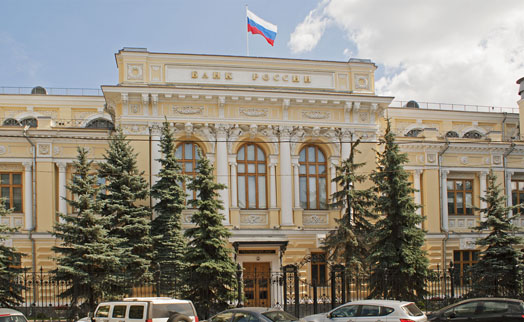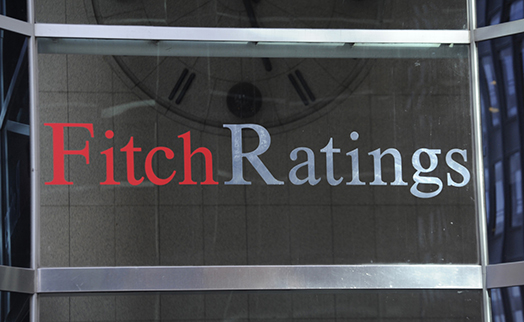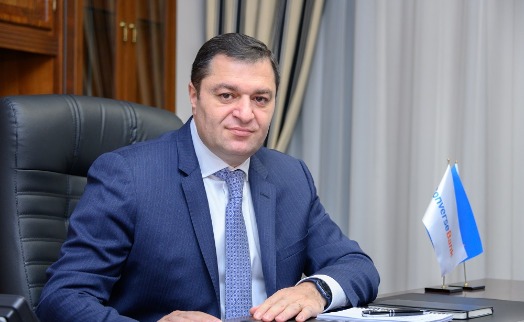03.04.2019 22:40

YEREVAN, April 3. /ARKA/. In 2018 Armenia-based insurance companies saw their profit drop considerably for the second year in a row. Nonetheless, despite that negative trend, the companies developed and introduced a set of new services. Besides, the government has launched this year a pilot agricultural insurance program, as the introduction of compulsory health insurance is being discussed. In an exclusive interview with ARKA news agency the head of INGO ARMENIA insurance company Arevshat Meliksetyan speaks about the problems of local insurance companies, the types of insurance, why some of them are unprofitable and what measures are needed to remedy the current situation? He also dwells on such issues as the effectiveness of the upcoming compulsory health insurance scheme and what kind of new insurance service may appear. He also speaks about INGO ARMENIA’s expectations in 2019 and in the near future?
ARKA - Mr. Meliksetyan, in 2018, the profit of Armenian insurance companies slashed by 69%. What was the cause of this dramatic drop for the second year in a row?
A.Meliksetyan - The basic job of insurance companies is insurance, incidental and investment. The common belief is that insurance activity should provide a zero result for each insurance company. In other words, an insurance company must pay as much of compensation claims as it collects premiums. As for profit, insurance companies are supposed to earn it from a 12-month investment activity, .i.e. during a time span when companies collect premiums from customers and pay compensation claims (about 200 days). Insurance premiums are collected and then invested, in particular, in bank deposits, in government bonds, and also in corporate securities. When we see a negative trend for years, this means that a company pays more compensation claims then collects premiums. At the same time, compensation claims are added to its administrative expenses.
ARKA - What type of insurance is the most unprofitable in Armenia today and why?
A.Meliksetyan – The mandatory insurance of vehicles has been the prevailing type of unprofitable insurance over the last years. According to the results of a decade of observation, traffic accident incidents show the worst result now. This can be seen in the frequency of accidents, in the number of insurance compensation claims for bodily and material damages. Deaths and injuries in road accidents in 2018 exceeded the figures for 2017 and 2016.
ARKA - What problems are present in this market today, and what is your vision of their solution?
A.Meliksetyan - Road traffic in Yerevan and in the country as a whole needs more strict regulations. Cases when drivers, while driving, are talking on the phone or writing SMS, has become more frequent, which is totally unacceptable. This s a cause of many accidents. A very common type of violation are a speed limit or abrupt change of lanes. Also a frequent cause of accidents, especially in the last six months, are pulling up in the second or third lane without any justified reason. Previously, drivers were fined or warned for this violation. But now, in my opinion, such violations are being overlooked. There is one more problem of frequent road accidents in Armenia - the tinted windows, which have long been banned in many CIS countries and in Europe. Darkened windows lead to a large number of accidents. Drivers do not see each other and cannot predict the actions of other drivers for prompt maneuver.
ARKA – Do you think that after the amnesty of fines for traffic rules breaches, vehicle owners have become more irresponsible on the roads?
A. Meliksetyan - Law-abiding citizens are always more attentive when it comes to paying fines. But there are also citizens who were once allowed by the government not to pay fines, and they think this gives them the right to drive as they wish and not be held responsible for breaking the road rules.
ARKA – Is the failure to replace the tires in winter is a frequent cause of road accidents?
A. Meliksetyan - The lack of a clause on winter tires in the law on mandatory vehicle insurance does not allow insurance companies to refer to it. Also, our legislation does not provide for a clear definition of what "winter tires" are. In different countries there are different definitions. In some of them, tires must be changed with the arrival of winter. We have no such regulation, but it must be obligatory. Previously, when applying for a CASCO insurance compensation claim, the presence of winter tires was an important criterion. If the accident’s cause was the absence of winter tires, it was not considered an insurance case. Later we faced many legislative problems because of this shortage and ceased to apply this provision. But, as practice shows, this is precisely the main reason behind many road accidents in Armenia in winter. Throughout the winter, we used to photograph the tires concluding eventually that in most cases those cars that did not have winter tires got into accidents.
ARKA – The Armenian legislation allows self-registration of road accidents. How did it affect the market of mandatory insurance of vehicles?
A.Meliksetyan - Statistics show that 63-65% of all road accidents are subject to insurance compensation claims, and the damage amount does not exceed 100 thousand drams, that is, the drives may themselves register it and fill in all the required papers. Earlier, when the damage amount was 50 thousand drams, about 20% of drivers took advantage of this provision of the law. This suggests that more and more drivers begin to seek compensation. But the disadvantage is that drivers apply for compensation claims even for the smallest damage and scratches. As a result, they create traffic jams in the hope of receiving 20 thousand drams. Some countries set up a franchise so that motorists are not stuck in traffic jams due to minor scratches. In other countries, this is governed by the bonus-malus system, which forces drivers to be more attentive not wishing to add at least one accident to their scores, since the compensation they receive for the accident will be much less than the increased tariff because of malus. In our case, the amount of malus are not so big, so it's more profitable for drivers to apply for compensation claims, even if the damage is very little. At the same time, the positive side of self-registration is that the conflict between drivers is limited to insurance. In general, due to the system of self-regulatory, the amount of paid compensation claims grew by 25%. I want to note that it is important to develop a mechanism that will calculate bonus-malus not only by the number of incidents, but also by the amount of damage. Suppose someone can apply for a compensation claim 2-3 times because of minor scratches, and someone applies for a compensation claim of $5,000 only once, but the first driver will pay more for the vehicle insurance than the second one. Therefore, this issue should also be regulated.
ARKA - What steps are needed to reduce unprofitability in the system?
A. Meliksetyan - There are several options. We can raise the rates or reduce the amount of compensation claims, and we can also change the methodology. We are not going to raise tariffs, because the price today is market and fixed. The price is also regulated by bonuses and malus. This year, bonuses reach up to 50% of the tariff for mandatory insurance of vehicles for those drivers who have not had accidents since the day when the insurance of vehicles was introduced, i.e. they pay half of the tariff. There are more than 4,000 such drivers. In total, there are over 480,000 vehicles in Armenia, of which about 60 thousand have been involved in road accidents, and about 400 thousand receive bonuses. The drivers who got into accidents already pay a larger premium, and this should balance the system. To reduce unprofitability, we need to change some points in the malus. For example, the one who in the course of the year had an accident more than one or two times, should pay more than 20% or 40% for insurance. Stricter traffic control can help reduce system loss. Another means of maintaining strict rules is to implement a driver evaluation system.
ARKA - What is the dynamics of other types of insurance?
A. Meliksetyan - The insurance market in 2018 (not counting the compulsory insurance of vehicles) showed an increase. Thus, insurance of accidents as a whole grew by 50%. Our company saw 20% growth; voluntary medical insurance increased by 7% and 5% respectively; CASCO - by 15%. The insurance market is a mirror of the economy, and the insurance system is its integral part. If there are risks and losses, they are measurable and can be insured. So, today in the banking system there are risks of losses from hacker attacks. We provide the opportunity to insure these risks.
ARKA - It has already been announced that from 2021, Armenia is moving to a comprehensive health insurance system. What pitfalls can the process of introducing compulsory health insurance face?
A.Meliksetyan - The Armenian government-proposed compulsory health insurance scheme is ineffective and will be a waste of time for Armenian citizens. The Ministry of Health is discussing now this scheme without insurance companies. The proposed scheme implies that it is the government that will deal with insurance of citizens' health. There are various options of compulsory health insurance in the world. There is a model in which the government is directly involved in health insurance of its citizens, and there is an option when it is dealt with through intermediaries, i.e. insurance companies. But the experience not only of post-Soviet, but also western countries shows that the government is a poor manager. The proposed scheme cannot even be half as effective as it is portrayed in the concept, since the human factor plays a huge role. The government-proposed model will only lead to a waste of time of our citizens. The scheme will be introduced, it will start working, and in a couple of years it will become clear that it is ineffective. There must be a conflict of interest for the system to work effectively. It is insurance companies that demand that medical institutions ensure high quality services for their clients. But when the insurer, the policy holder, and even medical institutions, which are supposed to provide services, are government-owned, there will be no conflict of interests. Even in those countries which are cited by the ministry as an example, health insurance schemes did not start immediately working effectively. Insurance companies in these countries began to accumulate funds since the 50s of the 20th century, and only years later, state insurance was launched. Even now, in some developed countries, these funds operate at a loss. The state has to subsidize them.
ARKA – Is Armenia ready for introduction of life insurance?
A.Meliksetyan - Naturally, and it should have been launched long time ago. In countries where life insurance works successfully, it directly depends on the country's legislation, in particular, on tax legislation. Life insurance is when a person pays for his life before the insured event. Life insurance is of two types: life insurance for survival and in case of death. This type of insurance in different countries is stimulated by law. For example, in Uzbekistan, when this system was launched, the sums transferred from the salary to insurance companies were exempted from taxes. That is, this money works as an investment. Insurance companies are intermediaries between citizens and the state. They collect huge money from the population and invest in the economy. Life insurance should be stimulated by tax breaks so that people can invest. If there is such assistance, then life insurance companies will definitely appear. In the world, life insurance accounts for 77% of all insurance premiums.
ARKA- The mandatory funded pension system is already fully operational in Armenia. According to the law, one of the ways to receive pension savings are annuity payments through insurance companies. Is this opportunity (service) already in force in insurance companies or is this system still in its infancy?
A. Meliksetyan - Annuity is a purely insurance product. And when insurance companies in Armenia start life insurance, they will be engaged in future pension payments to our citizens. From 2021, life insurance companies and new companies managing pension funds will probably appear on the Armenian market. Ordinary insurance companies, like ours, are not allowed to provide life insurance services. To provide such a service, it is necessary to open a separate company with separate capital. In all developed countries, this is exactly what happens. It is wrong to mix long-term money with classic types of insurance, putting investors at risk.
ARKA - How do you assess the overall competition in the insurance market of Armenia?
A. Meliksetyan - When the economy is not growing strongly, or stagnating, not only insurance companies, but others as well begin to reduce margins in an attempt to win new clients. The competition is tough.
ARKA - What expectations Ingo Armenia has for 2019? What are its near future tasks?
A. Meliksetyan – This year Ingo Armenia began to actively operate in the retail insurance market. In particular, this applies to medical and travel insurance. We see the demand for these types of insurance. More and more people, using different types of insurance, are getting convinced of their usefulness. We are developing new products: on March 15, we launched the sale of medical insurance policies for the whole family, and since April - insurance of liability for housing. We also believe that good prospects are opening up with the introduction of agricultural insurance, which will definitely bring the insurance market to a new level. In any case, as practice shows, in Armenia more and more people will somehow be associated with insurance. -0-
Read the news first and discuss them in our Telegram
Tags:






















